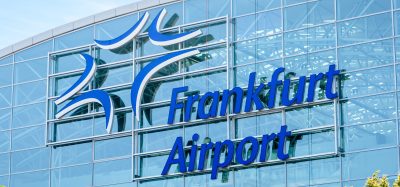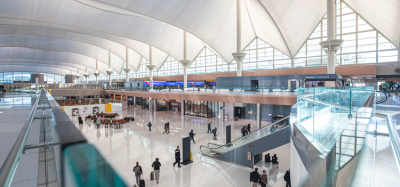Airlines and airports to invest $33bn in IT in 2017
- Like
- Digg
- Del
- Tumblr
- VKontakte
- Buffer
- Love This
- Odnoklassniki
- Meneame
- Blogger
- Amazon
- Yahoo Mail
- Gmail
- AOL
- Newsvine
- HackerNews
- Evernote
- MySpace
- Mail.ru
- Viadeo
- Line
- Comments
- Yummly
- SMS
- Viber
- Telegram
- Subscribe
- Skype
- Facebook Messenger
- Kakao
- LiveJournal
- Yammer
- Edgar
- Fintel
- Mix
- Instapaper
- Copy Link
Posted: 5 September 2017 | International Airport Review | No comments yet
Cyber security, cloud services and passenger self-service top three priorities for air transport industry according to a study from SITA.


Airlines and airports are estimated to spend nearly US$33 billion on IT this year, according to the SITA 2017 Air Transport IT Trends Insights released today. And they are focusing their technology investments on similar priorities. Top of the agenda for CIOs at both airlines and airports, are investments in cyber security and cloud services. In addition, they are prioritising investments in passenger self-service.
SITA’s research of the world’s airlines and airports shows that IT spend remains strong. Airlines’ spend as a percentage of revenue will rise to an estimated 3.30% or US$24.3 billion1 in 2017. For airports, the rise is to an expected 5.05% for this year or US$8.43 billion. Looking ahead to 2018 over 70% of airlines and 88% of airports are expecting IT spend to increase or remain at the same levels as today.
As IT spend increases, both airlines and airports agree that the number one priority for their investments is cyber security. Nearly all of them – 95% of airlines and 96% of airports – plan to invest in major programs or R&D on cyber security initiatives over the next three years. This shows alignment across the industry on the importance of investing in this area.
Ilya Gutlin, President, Air Travel Solutions, SITA, said: “The air transport industry is going through digital transformation and focusing its attention on protecting the business and passengers; making it more efficient; and improving the passenger experience. Cyber-attacks are a very real threat in the highly interwoven air transport industry so building solid defences is essential. Cloud services provide important efficiencies which play a key role in keeping costs down. Investments in self-service improve passenger satisfaction as they welcome the independence and efficiencies it delivers.”
Gutlin continued: “When it comes to IT investment, airports and airlines are aligned to provide better, more secure service to customers. The interdependencies built into air transport systems mean investments and improvements in all these areas, by airlines and airports alike, will continue to contribute to a strong global industry.”
Antoine Rostworowski, Director, Airport Customer Experience and Technology, Airports Council International (ACI), said: “SITA’s research, which was co-sponsored by ACI, reveals valuable insights for our industry. It is encouraging to see the alignment of investment priorities among airports and airlines, which reflects the collaboration between ACI and IATA on best practices. ACI and IATA have joint initiatives such as Automated Border Control, end-to-end baggage tracking (Facilitation), Data Exchange, Common-Use (Airport IT) and Smart Security. Industry partners such as SITA and others are also involved in these initiatives to make airports more efficient and to improve the passenger experience.”
Cloud services are another top investment priority with 95% of airlines and 85% of airports planning to invest over the next three years, continuing an upward trend that SITA has recorded since 2015. The third key area of investment that was highlighted by both airlines and airports is to provide extra self-service options to passengers.
Airlines are focusing on providing mobile services. Today the vast majority of airlines provide check-in (73%), boarding (70%) and flight status notifications (68%) via mobile and by 2020 more than 97% plan to do so. A key area of growth will be providing real-time flight updates over social media which will jump from 31% of airlines doing so to 92% in the next three years.
Providing a seamless experience is key to the airlines. In total, 94% rate streamlining services into a single app as a priority, with 58% rating this as a high priority. Mobile app capabilities and usability are developing quickly and an increasing number of airlines plan to use mobile as a customer service tool, including at times of disruption.
At airports, self-service processes at check-in, bag drop and boarding are increasingly popular with passengers and 89% of airports are investing in these processes. Airports operators have a keen focus on improving the journey through the terminal and are looking to new technologies such as the Internet of Things, beacons and sensors, to support their goals. SITA’s insights show that 80% are investing, or planning to invest, in these technologies over the next three years. Nearly three quarters, 74%, are investing in way-finding solutions and 68% in solutions to improve personalisation for the passenger.
SITA’s IT Trends are well established as the global benchmark research for the air transport industry. Senior IT executives at the top airlines and airports took part in the research earlier this year. The 2017 results once again provide a clear insight on the air transport industry’s IT strategic thinking and developments.
[1] Estimates based on 2017 revenues as forecasted by IATA, June 2017


















